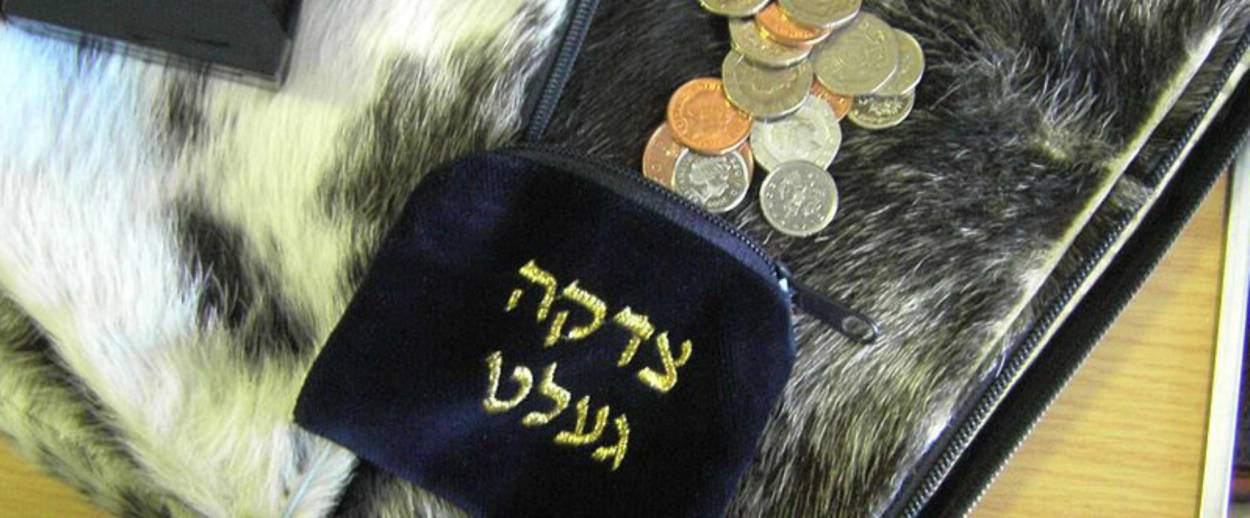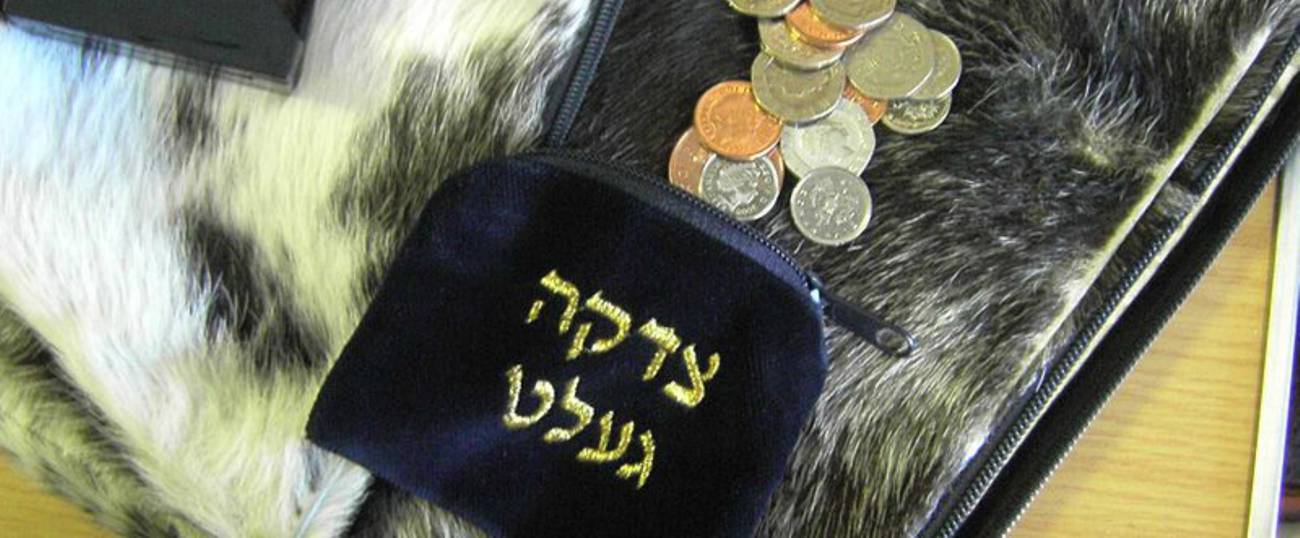How to Give Jewishly—and Be Financially Smart—in the New Year
‘Generous Justice’ is a new workbook that uses Jewish philosophy to help families and organizations think about money management, spiritual growth, and tzedakah




We knew my dad was losing his mind when we saw his checkbook. He’d always been meticulous about it. But in the last years of his life, what with heart failure and personality changes and probably a series of small strokes, his handwriting became wavery and illegible; it crept diagonally down the page like a spider. He forgot checks or recorded them twice. He kept buying televisions— despite never caring much about either decor or mass media.
I was reminded of dad’s checkbook after seeing the cover of the recently published workbook Generous Justice (Nedivut Tzedek), which depicts author Rabbi Regina Sander-Phillips’s own father’s ledger, tracking the family’s spending on a two-week family road trip in 1968 to Maine and Nova Scotia. It’s so precise! Both Sandler-Phillips’s and my fathers were careful with money, determined to raise children who valued experiences above things, and focused on the math and minutiae that can connect finance and menschiness.
Generous Justice is a resource for learning about Jewish philosophy as well as personal finance. It’s a guide to social action and philanthropy, and a tool for spiritual growth—a breath mint and a candy mint. It’s full of quotations about money and generosity from such diverse sources as the books of Isaiah and Deuteronomy, the writings of Maimonides, the Babylonian Talmud, the Chofetz Chayim, Suze Orman, Rabbi Jill Jacobs, and 17-year-old Hannah Salwen. Because the format consists of short readings and discussion questions, I can see it working as a lively tool for book clubs and investment clubs, synagogues, families, seders with friends.

Sandler-Phillips, the director of Ways of Peace Community Resources in Brooklyn, talks a lot about heshbon. She defines heshbon as “spiritual and financial accountability.” We’ve all heard of tithing, the notion of giving 10 percent of your income to charity, which comes, naturally, from the Jewish people. (In the Torah, we see Abraham and Jacob tithing, and the practice is mentioned repeatedly throughout the Torah.) Sandler-Phillips directs us to the Babylonian Talmud, which notes, “Just as each small metal scale joins into a great plate of armor, so with tzedakah each and every coin joins into a great heshbon.” Jews have a history of benevolent societies and Hebrew aid societies that collected small weekly dues from members to help new immigrants and the poor. We used to do heshbon up right.
But today, American Jews are less generous. In a 2015 Tablet piece about tithing, Sandler-Phillips cited “How America Gives,” a 2012 study by the Chronicle of Philanthropy (updated in 2015). It showed that across the country, lower income people gave a much higher percentage of their money to charity. Using the Chronicle of Philanthropy’s online tool, Sandler-Phillips discovered that in her own zip code, donors who earned less than $25,000 were four times as generous as those who earned six figures. And this isn’t just true in NYC. The average American rate of giving is only two percent, much less than the 10 percent our texts suggest. (Sandler-Phillips says that data on Jewish giving seems to indicate that here in America, we give like Americans—for better and worse, which means mostly worse.)
But Judaism not only encourages generous donation, but also frugality, as indicated by these four principles: Shabbat (which Sandler-Phillips defines as a stop to rest and to enjoy that rest), kashrut (which she defines as “appropriateness”), heshbon (accountability), and lo tashkhit (don’t waste). To her, this means living more simply, tamping down our rabid consumerism, celebrating our abundance and making socially and environmentally sound decisions. Both the guidebook and Ways of Peace as an organization (via community learning and family consultations) give direction for doing so. Ways of Peace’s website further offers ideas about and links to organizations that support these principles, such as HIAS, the Indigenous Environmental Network, the Jewish Coalition for Disaster Relief, and Healing Across the Divides, which supports health initiatives in Israel and the West Bank that help forge inter-agency cooperation. The book also quotes the Mishnah, which states: “Who is wise? One who learns from every person. Who is a hero? One who controls their impulses. Who is rich? One who rejoices in their portion. Who is honored? One who honors all creation.”
And if all this is not enough, you can mortify your children with a section on folk songs that have been altered to teach lessons about money. You know that song that starts, “Inch by inch and row by row”? Sing it out as “Column by column, row by row, gonna track my money flow,” and watch your kids sink into the floor. “Sing a song of sixpence” becomes “Sing a song of loose coins.” Watch your offspring die. And that old camp fireside fave “One Tin Soldier” is reworked to become a retelling of the folktale Stone Soup. Truthfully? I like it better this way.
Marjorie Ingall is a former columnist for Tablet, the author of Mamaleh Knows Best, and a frequent contributor to the New York Times Book Review.